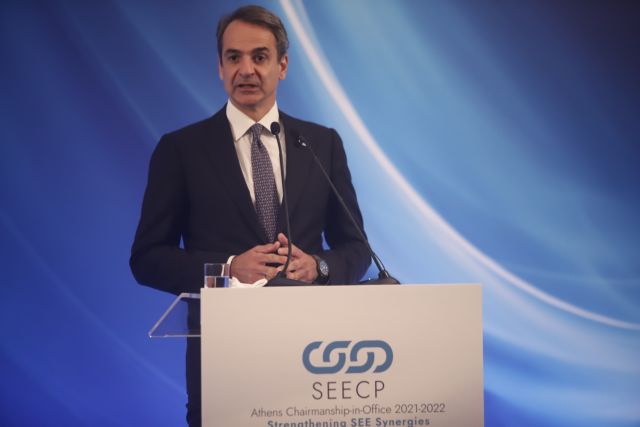
Greek Prime Minister Kyriakos Mitsotakis pointed to 2033 – a little more than a decade away – as the landmark date for the accession of all western Balkan states into the European Union, speaking on Friday evening during the South East European Cooperation Process (SEECP) Summit in the northern city of Thessaloniki.
The summit brought together leaders from across the region.
In referring to 2033, Mitsotakis said the goal was ambitious for the western Balkans but can be realistic “if the idea of expansion returns to the Union’s core values.”
“It was demonstrated that there is, indeed, a dynamic for cooperaton by all parties in the region, and at the same time, this summit created a road map of common goals and principles, which I believe will only lead forward,” he said.
The joint declaration of Thessaloniki adopted “is an official document of continuing commitment of sides to the principles of democracy, the state of law, and the founding principles of mutual respect and solidarity,” the Greek leader said. He reiterated that the key priority is the integration of the entire SE European region, especially the Western Balkans, into the European Union, “nearly 20 years since the path opened in Thessaloniki again during the Greek chairmanship in 2003.”
Today, Mitsotakis added, “the time has come to go ahead with decisive steps to incorporating the Western Balkans in the European family, recognizing obviously that they must promote significant steps to bring them in line with European directives – only then will their accession be substantial, after all.”
On his part, the president of the European Council, Charles Michel, thanked the Greek Prime Minister, using Twitter to praise Mitsotakis for his “…active chairmanship of the South-East European Cooperation Process (SEECP) summit…You play a pivotal role in promoting cooperation in this key region for European peace and stability.”
The entire declaration following the Summit:
SEECP THESSALONIKI SUMMIT DECLARATION
Thessaloniki, 10 June 2022
Under the Chairmanship of Prime Minister Kyriakos Mitsotakis, we, the participants to the South East European Cooperation Process (SEECP) Summit, President Borut Pahor, President Milo Đukanović, President Vjosa Osmani-Sadriu, President Šefik Džaferović, Prime Minister Natalia Gavriliţă, Prime Minister Dimitar Kovacevski, Prime Minister Edi Rama, Prime Minister Andrej Plenković, Vice Prime Minister Sorin Grindeanu, Minister for Foreign Affairs Nikola Selaković, Minister for Foreign Affairs Teodora Gencovska and Deputy Minister for Foreign Affairs Faruk Kaymakcı.
In the presence of the President of the European Council, Mr. Charles Michel, and the Regional Cooperation Council (RCC) Secretary General, Mrs. Majlinda Bregu.
Reaffirming our strong commitment to the founding principles of the SEECP Charter, the UN Charter, as well as to the relevant documents of the EU, OSCE and the Council of Europe;
Emphasizing our commitment to the values of democracy, rule of law, solidarity, respect for human rights and fundamental freedoms, as the cornerstone of economic and social progress in our region;
Recognizing the role and importance of the SEECP as the main political forum for cooperation in South East Europe, based on shared strong political will, with emphasis on it being an inclusive, self-sustained and regionally-owned process, based on the principle of equality;
Stressing our common vision towards the European perspective of our entire region, as a key vehicle to achieving peace, security, as well as social coherence and economic development through cooperation;
Reiterating our special attention to the free movement of people and the importance of the visa-free regime for the entire SEE region with the EU;
Acknowledging the global challenges of the COVID-19 pandemic and its heavy socio-economic repercussions in South East Europe, at the same time welcoming the solidarity shown by the SEECP participants and their partners in mitigating and overcoming them;
Deploring and condemning the illegal, unjustified and unprovoked invasion in Ukraine by armed forces of the Russian Federation; conveying our strong support for its sovereignty, territorial integrity and independence; expressing our solidarity with Ukraine, its government and the friendly Ukrainian people;
Affirming, in very challenging times for peace and security in Europe, that we are committed to intensify the efforts to enhance our cooperation and coordination in the field of foreign and security policy, and to defend the European values upholding the primacy of international law, a rules-based international order, and good neighbourly relations;
Recalling the essence and deliverables of previous SEECP Summit Declarations;
Underlining the importance for the future of the region of the South East Europe 2030 Strategy, aimed at advancing the UN Sustainable Development Goals through regional cooperation;
Reaffirming the need to cooperate at a regional level in response to shared regional and global challenges;
We have agreed the following:
ENHANCE THE EUROPEAN PERSPECTIVE OF THE REGION
We once again stress our firm belief in our common European future. In the turbulent times we are going through, the European Union has proven to be the most successful endeavor in guaranteeing peace, stability as well as economic growth and social prosperity in our continent.
Thus, acknowledging the diversity of the SEECP participants’ relationship with EU, including the recent EU accession application of one SEECP Participant, we strongly support the European perspective of each one of them, based on the own-merits principle in meeting the relevant conditions, since we consider that it will bolster security, economic and social growth, and will guarantee the adherence to human rights, rule of law and fundamental freedoms. The aspirants reiterate their dedication to European values and principles and to carrying out necessary reforms in the interest of their people.
We believe that the full integration of the South East Europe to the European Union serves both the best interest of the region and the European Union itself, once all set conditions are fully met. The SEECP Participants that are already members of the European Union will continue to support the European perspective of the SEECP Participants that are willing to join.
Given that the European perspective of South East Europe constitutes a major strategic choice for the SEECP Participants, we acknowledge the need to further strengthen the political dialogue between the EU and the partners in the region, which are not EU members in order to achieve a higher level of coordination and cooperation in decisions, policies and positions taken by the EU and the SEECP Participants and to facilitate the convergence of non-EU member SEECP Participants’ legislation with that of the EU acquis. Likewise, we call for a merit-based acceleration of the European integration process, in accordance with the progress achieved by each of the aspiring SEECP Participants.
Considering furthermore the significance of deepening adherence to the fundamental freedoms and democratic values, the rule of law and the respect for human rights, in the frame of the region’s European perspective, the Participants attribute special importance to enhance synergies in the field of Education. Education for democracy and human rights is a vital instrument in promoting peace and solidarity as well as good neighbourly relations, thus improving and maintaining stable international relations and fruitful cooperation; hence, strengthening educational synergies in this field is hereafter a Participants’ mutual commitment.
Moreover, in terms of supporting socio-economic transformation of EU aspirants in the South East Europe, the Participants urge for the implementation of commitments made under the Common Regional Market and the Green Agenda for the Western Balkans in line with the principles of equality and inclusiveness. The Participants recognize the role of RCC and CEFTA in these endeavors.
The Participants recognize the transformative nature of EU perspective requiring a whole-society approach. Therefore the Participants support strengthening mechanisms of parliamentary and civil society engagement, and recognize the role of the RCC in fostering inter-governmental, parliamentary, and other forms of cooperation on regional level in view of EU integration.
PRIORITIZE ENERGY SECURITY
Recent global developments in the international energy market have brought up to the forefront the need for enhancing energy security. Recent challenges in the energy sector following the war in Ukraine can only be overcome by closer cooperation, solidarity and collective action on the part of all parties involved.
The SEECP Participants agree that South East European energy security depends on diversification of energy sources and supply routes. Participants also reaffirm their commitment to accelerating the energy transition process by increasing the generation of energy from renewable and clean sources and reducing energy consumption through increasing energy efficiency.
Natural gas is a crucial source of energy for foreseeable future, until such time new technologies can phase out all fossil fuels. Both LNG regasification stations and interconnections through pipelines are of paramount importance. Diversification of energy sources and routes is essential. Participants note that the Southern Gas Corridor, Eastern Mediterranean and Black Sea reserves and feasible transport routes constitute a solution to South East Europe’s energy needs, together with LNG from various international providers.
Furthermore, the Participants consider that electricity interconnections can also play a major role in establishing grid stability and supply security for South East Europe.
EU financing through its various financial instruments, can assist in the development of necessary infrastructure in the region in the near future. Accelerated investment in the renewables is another step towards reaching energy sufficiency in line with the decarbonisation targets.
The current price hikes in energy supply are a hindrance to poverty reduction efforts and to competitiveness of the region’s industries. We urge for the consideration of the socio-economic impact of energy price increases and call on the SEE 2030 Strategy Monitoring Committee to reprioritize the relevant regional actions to mitigate the threat of poverty and low competitiveness by strengthening regional cooperation.
INTENSIFY COOPERATION IN ADDRESSING SECURITY ISSUES
The Participants are fully committed to strengthening their cooperation in addressing the ever-increasing challenges and new threats to the security and stability of South East Europe, which are inseparable from overall European security and stability.
The Participants agree to continue their cooperation on security issues. Their contribution to EU CSDP missions and operations demonstrates their commitment to preventing crises and promoting peace and security in our region and beyond. In this context, the Participants acknowledge also the role of NATO and OSCE, as well as regional security initiatives under the RCC umbrella.
Furthermore, the Participants reaffirm their commitment to tackling the serious threats of organized crime, violent extremism, terrorism, human trafficking, xenophobia, anti-Semitism, Islamophobia, anti-Gypsyism, hate speech and forced labour, as well as their shared determination to address the irregular migration challenges and, overall, further strengthen cooperation in the region and beyond in the fight against transnational criminal networks.
The Participants underline the importance of the common fight against financing of terrorism, arms and drugs smuggling, human trafficking, irregular migration and radicalization, as well as against uncontrolled proliferation and illicit possession of Small Arms and Light Weapons (SALW).
Furthermore, the Participants recognize the need to make the best use of cooperation in advancing regional disaster preparedness and prevention capacities; to that end, we call upon the RCC and Disaster Preparedness and Prevention Initiative of the SEE to unite efforts in order to tackle challenges inflicted upon the Region by natural and man – made disasters.
Moreover, the Participants recognize that there has been an increasing number of different forms of hybrid, disinformation, as well as cybercrime threats throughout the Region over the last years and therefore acknowledge the importance of enhancing synergies so to effectively address these threats, both at a strategic and operational level. Participants welcome new initiatives in countering cyber-crime, particularly in view of enhancing cooperation with the EU and its relevant institutions.
INCREASE SYNERGIES & CONNECTIVITY TOWARDS ECONOMIC GROWTH
Adhering to the imperative of economic growth as the pivotal prerequisite of stability and prosperity, the SEECP Participants express their strong belief that synergies constitute the fundamental tool towards this aim; in parallel, synergies could function as the comparative advantage of the region, releasing its full potential.
Thus, the Participants express their enhanced commitment to continue taking as well as supporting synergy initiatives in all economic development related fields: capital investments, improvement of human resources, job creation, technology dissemination and innovation and competitiveness enhancement.
Furthermore, the Participants underline the particular importance of connectivity as the stimulus and aspired outcome of synergies within the SEE region. Enabling connectivity in all possible forms is an efficient lever of growth acceleration. For that purpose, fostering connectivity at all levels and fields of activity in the SEE region is crucial, including as foreseen by the SEE 2030 Strategy and in line with the existing EU policies and priorities, primarily the Global Gateway Strategy as it is fostering the twin transitions globally; it is boosting smart, clean and secure links to digital, energy and transport sectors and strengthening health, education and research systems.
The Participants recognize the negative impact of depopulation trends in some SEECP Participants and migration from the rural to urban areas as an overarching and multidimensional risk for sustainable economic growth. In this context, the Participants call for committed and sustained regional synergies to mitigate the mid- and long-term risk of depopulation, within the framework of the SEE 2030 Strategy.
CONTINUE ADDRESSING THE COVID-19 REPERCUSSIONS
Considering the long-term social and economic repercussions of the Covid-19 pandemic on social and economic level, the SEECP Participants commit to build on the best practices and lessons learned from the pandemic, especially regarding the need for enhanced regional and international cooperation and the implementation of partnership initiatives. Furthermore, the SEECP Participants commit to continue updating public health plans and accelerate post-Covid 19 social and economic recovery.
FOSTER GREEN GROWTH DEVELOPMENT AND ADDRESSING CLIMATE CHANGE
Recognizing the importance of sustainable development for the future of SEE region, the SEECP participants adhere to the principle that sustainability constitutes the main parameter with respect to economic development planning and projects realization.
The Participants recognize that addressing climate change is a primarily shared challenge, since environmental issues have a spillover effect; hence, productive adaptation to climate change and sustainable use and management of resources, preservation of bio-diversity and cultural heritage will serve as a primal prism towards a holistic, regional approach targeting the common goal of our economies’ green transition.
The Participants are committed to making further efforts to reach the goals of the Paris agreement thus abating emissions of greenhouse gases and air pollution and improving quality of life of our citizens and continue working on the prevention of river, inland waters, sea pollution and protection of marine environment.
In this regard, the SEECP participants underline that the SEE 2030 Strategy plays a pivotal role in strengthening regional cooperation and creating cooperation opportunities in new areas, while serving as an inclusive regional strategic initiative for dialogue and synergies on sustainable development issues with a direct impact on the socio-economic development agendas of the SEE economies.
In addition, acknowledging the importance of raising the awareness on the significance of the sustainable development and green policies, we commit ourselves to work on sensitizing young people to these topics, through educational systems and programs.
Furthermore, the Participants welcome and support enhanced efforts in the implementation of the EU Green Deal and the Green Agenda for the Western Balkans, recognizing their potential to contribute to mutual benefit.
PARLIAMENTARY ASSEMBLY OF THE SEECP
The Participants support and highly appreciate the work of the SEECP Parliamentary Assembly. The role of inter-parliamentary dialogue and cooperation is essential in fostering continuous political dialogue, upholding democratic standards, and reinforcing democratic institutions and the rule of law. The Participants encourage further engagement of SEECP Parliamentary Assemblies in the agendas of regional cooperation and in supporting the European perspective of the entire region.
Furthermore, the Participants welcome the recognition of Parliamentary Assemblies among the stakeholders in the UN Sustainable Development Goals implementation, and invite their active role to ensure their support and contribution to the implementation of the SEE 2030 Strategy on UN SDGs at regional level.
The Participants acknowledge and welcome the efforts of the Hellenic Parliament in successfully chairing the Athens Chairmanship-in-Office of the SEECP Parliamentary Assembly; efforts that aimed to the further enhancement of the role of the SEECP Parliamentary Assembly.
SEECP-RCC SYNERGY
The Participants acknowledge and welcome the excellent synergy between the SEECP and the RCC as its operational arm. They recognize the important role of the RCC in facilitating and advancing regional cooperation agenda under the SEECP political guidance.
The Participants welcome the RCC Strategy and Work Programme 2023-2025, endorsed at the RCC Annual Meeting, as the overarching document guiding the facilitation of regional priorities as elaborated in this and previous SEECP Declarations and in line with the SEECP Charter.
The Participants call on the RCC to continue exploring ways of strengthening regional cooperation as per the needs of SEECP Participants and the Region. The Participants recognize the RCC as the most appropriate framework for the implementation of regional programmes and its role as a hub of different regional cooperation initiatives. The Participants support the RCC role in light of its contribution to coordination and streamlining of regional cooperation efforts.
ATHENS SEECP CHAIRMANSHIP-IN-OFFICE
The Participants express their appreciation to the Athens Chairmanship-in-Office 2021-2022 under the motto “Strengthening SEE Synergies”.
The Participants welcomed the priorities set by the Athens Chairmanship-in-Office i.e. enhancement of security cooperation, exchange of best practices on functioning democratic institutions, rule of law and human rights, especially in the context of the European prospect of SEE region, connectivity and sustainable development, cooperation in the fields of investment, competitiveness and mobility, addressing environmental concerns, promotion of sustainable, equitable and green growth, and last but not least addressing the COVID-19 pandemic and its socio-economic repercussions.
Latest News
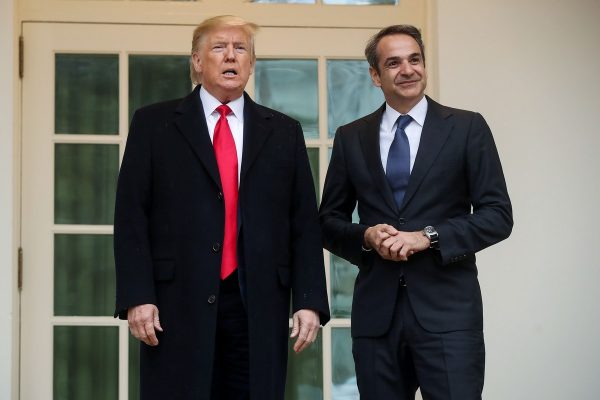
Τραμπ για πρόταση Μητσοτάκη: Συμφωνώ με την πρόταση για εξεύρεση «win-win» λύσης
Μπορεί να γίνει συμφωνία με την Ευρωπαϊκή Ένωση, δήλωσε ο Ντόναλντ Τραμπ κατά τη διάρκεια δηλώσεών του, όταν ενημερώθηκε για σχετική τοποθέτηση του Έλληνα πρωθυπουργού
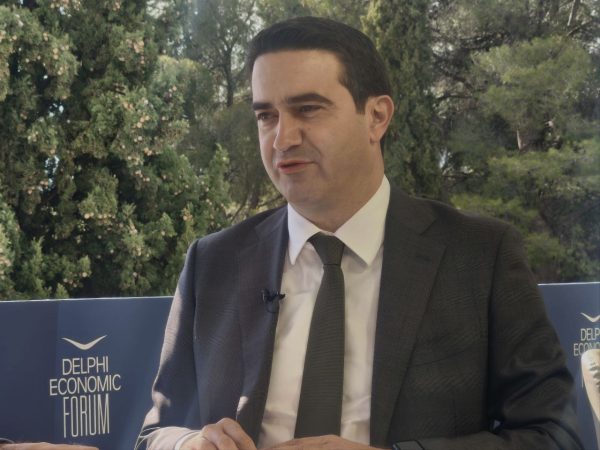
ΟΤ Delphi Economic Forum X – Μιχάλης Κατρίνης: Πολλές επιχειρήσεις παραμένουν εκτός ρευστότητας
«Στην πραγματική οικονομία υπάρχει σοβαρό πρόβλημα με πολλές επιχειρήσεις να παραμένουν εκτός ρευστότητας», είπε ο Μιχάλης Κατρίνης μιλώντας στον ΟΤ, στο πλαίσιο του Delphi Economic Forum X
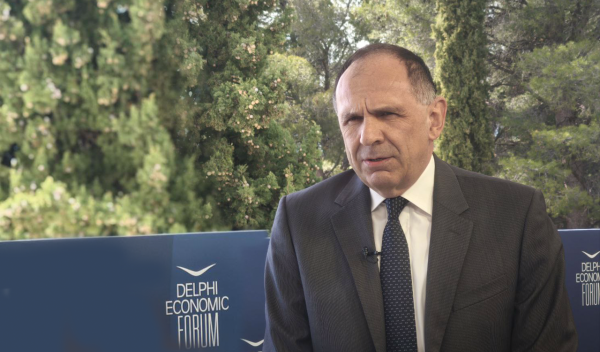
ΟΤ Delphi Economic Forum X – Γιώργος Γεραπετρίτης: Προχωράμε με τις εργασίες για το καλώδιο Ελλάδας – Κύπρου
«Έχουμε στρατηγικές σχέσεις με τους μεγάλους παίκτες» είπε ο υπουργός Εξωτερικών στο ΟΤ Delphi Economic Forum X
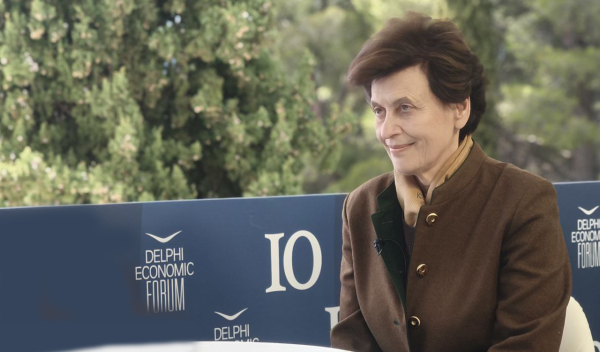
ΟΤ Delphi Economic Forum X - Ινώ Αφεντούλη (ΙΔΙΣ): Πολυεθνική λύση για την Αν. Μεσόγειο
Η εκτελεστική διευθύντρια του ΙΔΙΣ υποστήριξε στο ΟΤ Delphi Economic Forum X ότι είναι η στιγμή η ελληνική διπλωματία να αναπτύξει ένα στρατηγικό σχέδιο
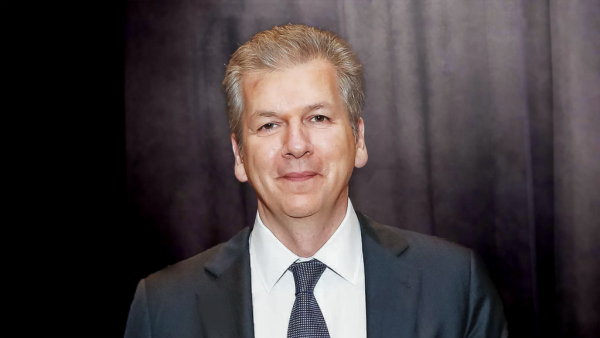
Σκάνδαλο Folli Follie: Αποφυλακίζεται υπό όρους ο Τζώρτζης Κουτσολιούτσος
Το αίτημα που αφορά στην υπόθεση της Folli Follie έγινε δεκτό κατά πλειοψηφία από το δικαστήριο – Τι είπε η δικηγόρος του για την αθωωτική απόφαση της προηγούμενης εβδομάδας

Διεκόπη για τις 8 Μαΐου 2025 η δίκη για την υπόθεση της Folli - Follie
Κανείς εκ των κατηγορουμένων για την υπόθεση της Folli Follie δεν κάθισε στο εδώλιο καθώς, όπως έχουν δικαίωμα εκ του νόμου, εκπροσωπήθηκαν από τους δικηγόρους τους
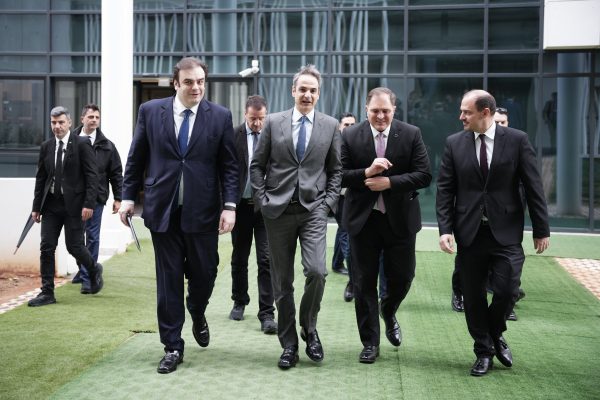
Μητσοτάκης: Μπαίνει τάξη στη διαδικασία υποβολής φορολογικών δηλώσεων
«Όσοι υποβάλουν τη φορολογική τους δήλωση μέχρι τις 30 Απριλίου έχουν έκπτωση 4%» τόνισε ο κ. Μητσοτάκης
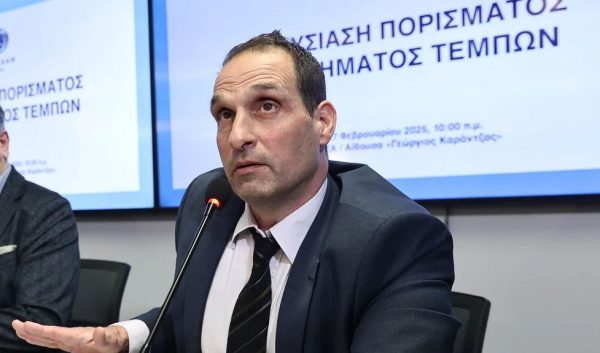
Παραιτήθηκε ο Χρήστος Παπαδημητρίου από τον ΕΟΔΑΣΑΑΜ
Απέστειλε επιστολή στον αρμόδιο υπουργό - Σύμφωνα με πληροφορίες, δεν του ζητήθηκε η παραίτηση αλλά ήταν οικειοθελής
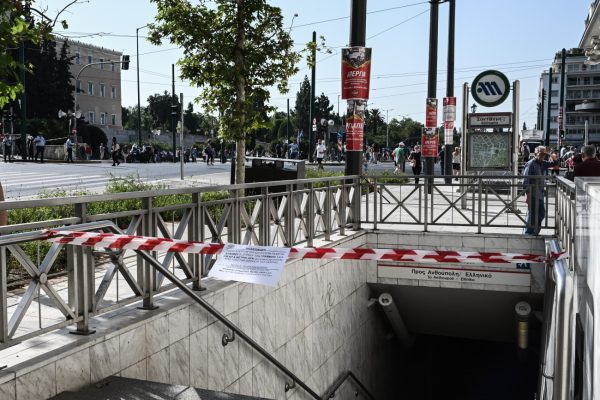
Με εντολή της ΕΛ.ΑΣ.: Κλειστοί οι σταθμοί του Μετρό «Σύνταγμα» και «Πανεπιστήμιο»
Με εντολή της ΕΛΑΣ, οι σταθμοί του Μετρό «Σύνταγμα» και «Πανεπιστήμιο» θα παραμείνουν κλειστοί καθ’ όλη τη διάρκεια των απεργιακών συγκεντρώσεων.

Πώς η Ευρώπη ελπίζει να εξοπλίσει την Ουκρανία σαν «αστακό»
Η υπόθεση της επένδυσης στην εγχώρια βιομηχανία όπλων της Ουκρανίας είναι επιτακτική. Η Ουκρανία ήταν μεγάλος κατασκευαστής όπλων κατά τη σοβιετική εποχή, αλλά η βιομηχανία εξαφανίστηκε το 1991


















![Airbnb: Ρεκόρ διανυκτερεύσεων σε καταλύματα βραχυχρόνιας μίσθωσης – Στα ύψη η ζήτηση σε Ελλάδα [γραφήματα]](https://www.ot.gr/wp-content/uploads/2024/07/airbnb-1-90x90.jpg)







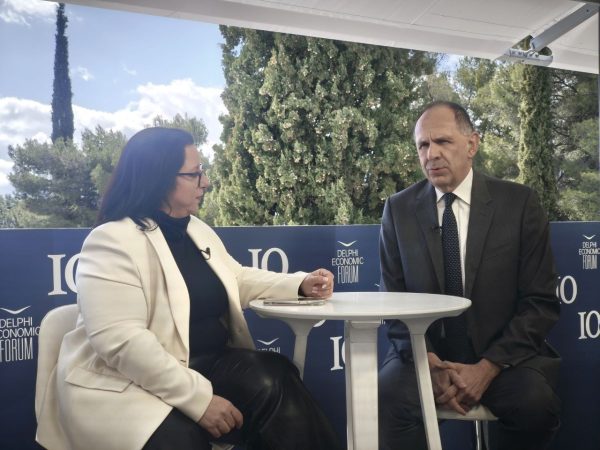

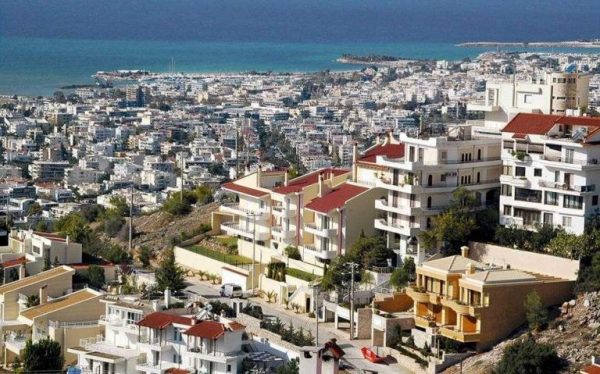

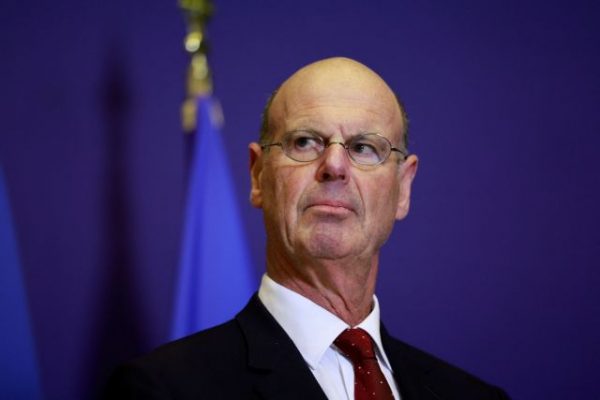


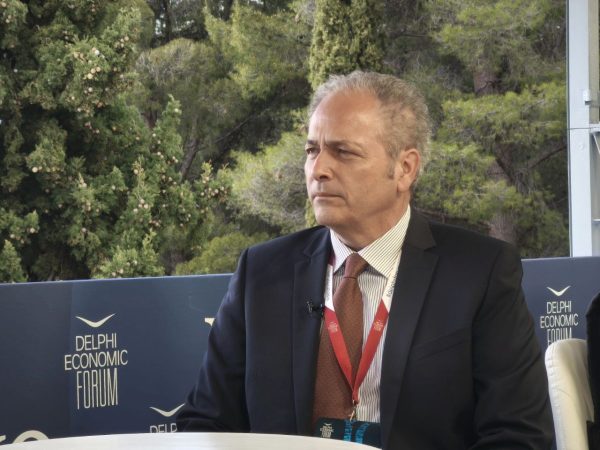


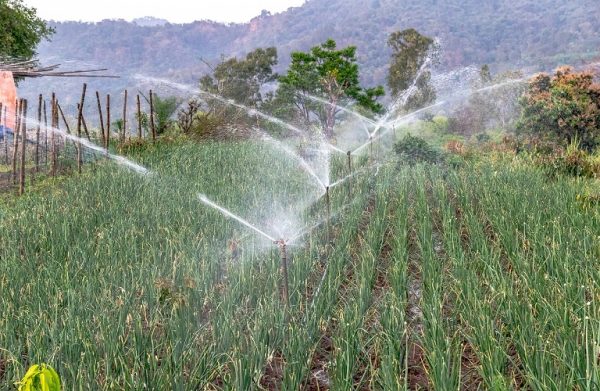
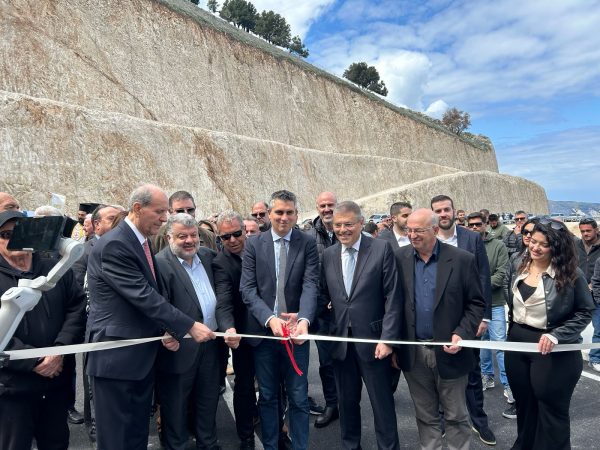
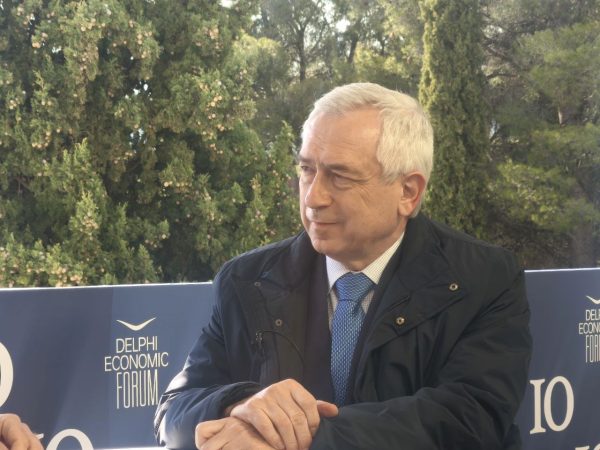

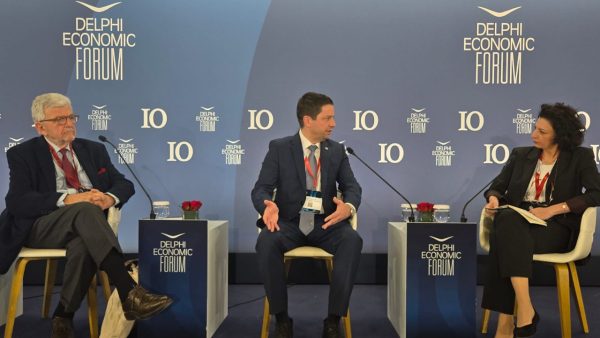
 Αριθμός Πιστοποίησης
Αριθμός Πιστοποίησης